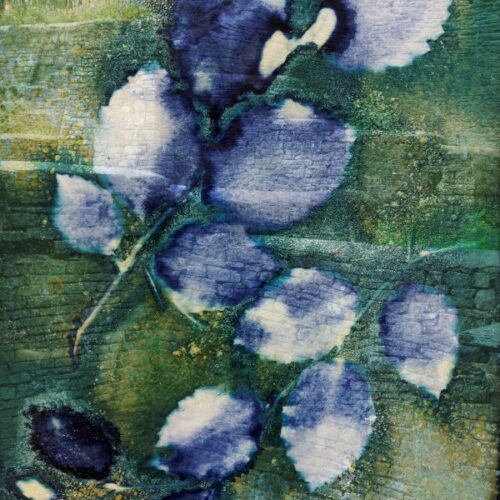
Student stories: Anne Bryson, Photography
In this post we celebrate the learning journey of photographer and OCA student, Anne Bryson. Earlier this year, Anne exited the Photography degree at the end of level 2 with the award Diploma in Higher Education (DipHE). After a short study break she decided to take the short course, Investigating Place with Psychogeography and used this to further extend a project exploring the coal mines in the Forest of Dean. She caught up with programme leader Dan Robinson.
Tell us about you:
I’m Anne, late 60’s, born and raised in Scotland but now retired and living in Gloucestershire where we settled when my husband retired from the Royal Air Force. Even now I would love to return to Scotland permanently but with 3 grown up children and 8 grandchildren living locally I think we will be staying put! I have always had an interest in photography and owned a camera most of my adult life, however life, work and family got in the way and resulted in most of my hobbies being put on the back burner.
Could you outline your previous educational experiences and what drew you to OCA
The eldest of 7 children, I left school at 15 and after a short spell in an office, joined the WRAF, where I met my husband. Whilst in Germany I passed ‘O’ level Maths and German and on returning to the UK did an accountancy qualification followed by a series of business management courses with the Open University.
A period of illness in 2010 led to me retiring from work and whilst undergoing chemotherapy, spotted a 10-week digital photography course in the OU alumni magazine and that was the start. Shortly after finishing cancer treatment, I visited, ‘Focus on Imaging’, now the ‘Photography Show’ at the NEC in Birmingham, where the Open College of the Arts had a stand and after chatting to a photography student and tutor, signed up for ‘The Art of Photography’. I had no thoughts at that time of a formal qualification and TAoP seemed like the perfect creative follow up to the more technical OU course.
Can you describe your OCA journey?
Following ‘The Art of Photography’, my next two level 1 courses were chosen to challenge areas where I lacked confidence. I have struggled with some of the post processing software so Digital Photographic Practice seemed a good first choice. Likewise, I felt anxious taking photographs of people but People and Place has really helped alley those fears as a result of which I have since photographed several weddings for family and friends. Towards the end of People and Place, I started to believe I was capable of progressing further with my studies.
I love photographs that tell a story and Documentary allowed me to develop this in my own practice. It was also during this course that I started to appreciate the benefits of research, not just in terms of my own assignments but also exploring the work of other photographers. My biggest challenge has been learning to take risks – I am an accountant and this is something that you don’t do! Landscape is an area I am comfortable with and maybe that gave me the confidence and freedom to try different things and experiment more.
Was there a particular moment when it ‘clicked?’ (pardon the pun!)…
There are two things that suddenly made a difference to both the enjoyment and outcomes of my studies and they are collaboration and research. Up until half way through Documentary, I had worked in isolation except for the odd study visit but then Anna Goodchild re-established the South West OCA group. This is a multi-disciplinary group that meets on a monthly basis at one of 3 locations in the South West and for me the benefits are in the richness and diversity of the students attending – we all learn so much from people studying a different discipline. Really researching my subjects – going down old coal mines, visiting decommissioned prisons, photographing a walk or a train journey has given me a different kind of ownership of my work. These are things that will stay with me going forward.
How have you found the tutor and peer support?
My landscape tutor, Andy Hughes was always very encouraging prompt with his feedback and I appreciated it very much. Without doubt though, the group I came to depend on most in terms of motivation, kickstarting ideas when I’ve been stuck, honest critique and sometimes just giving a virtual hug has been the South West OCA group. As well as the regular meetings, now held via Zoom, we have had 2 exhibitions and numerous ad hoc visits to exhibitions and of course the visiting tutors have brought a range of skills from their own practice to support our learning.
What does getting a DipHE* in Photography mean to you?
I took the difficult decision for health reasons to exit after level 2 so will not complete the degree. Initially this felt like a failure until it was pointed to me that DipHE is something to be celebrated in its own right, which it is. I have reached the stage in my life where my photography should be a pleasure rather than the cause of anxiety so I will continue with the projects I had planned and enjoy the process.
* Dip HE (Diploma of Higher Education) is awarded for 240 credits HE study (levels 1 and 2 of a BA Hons)
What’s next?
Since withdrawing from the degree pathway I have undertaken the OCA short course, Investigating Place through Psychogeography which has given me a focus and boosted my motivation, both of which dropped during lockdown. It was always my intention to extend the work I did for Landscape Assignment 3, based around the coal mines in the Forest of Dean and this has become my focus for the psychogeography course, only this time investigating the iron industry. There is very little visual evidence left of the old iron works but what is there, was there 200 years ago and will be there for generations to come, are the same trees and vegetation, so this is what I have been concentrating on. I am currently experimenting with making wet cyanotypes with the vegetation and layering the resulting prints with photographs of the old iron works to make composite images. Who knows where this project will end up but it wouldn’t have been possible without the amazing toolkit I developed through my years with the OCA.
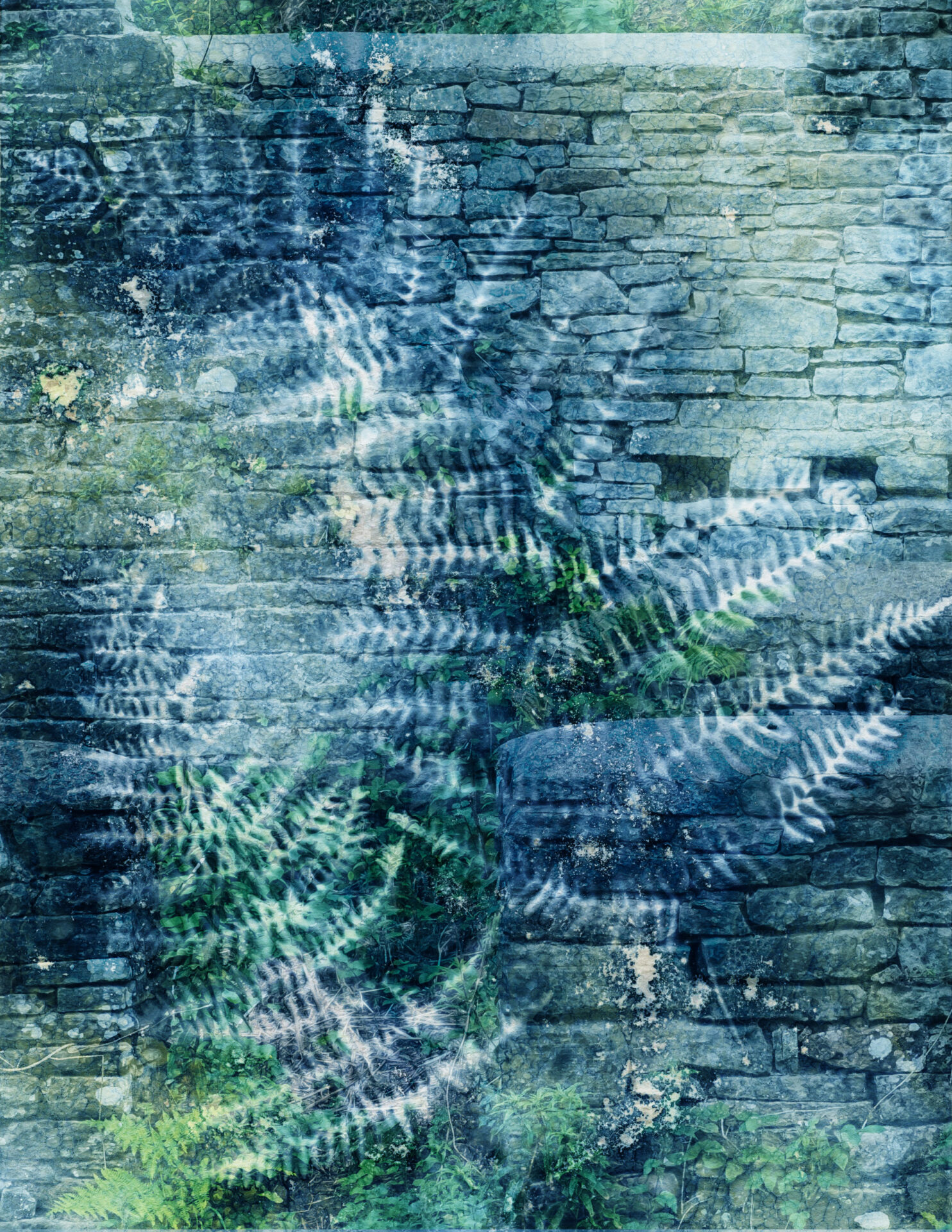
“The chemical / photographic processes alone have all kinds of possibilities, and the underlying ideas and concepts could put a whole new spin on representations of mining… a project that is already rich, highly engaging and full of potential”
Andrew Conroy (Anne’s tutor on the Investigating Place with Psychogeography short course)
Further links:
Anne Bryson on instagram.
Anne’s padlet work from the short course Investigating Place with Psychogeography. Anne chose this to extend her work after the award of DipHE from OCA’s BA (Hons) Photography degree
|
|



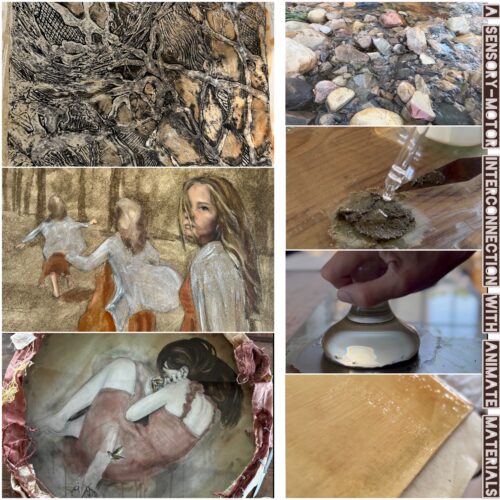
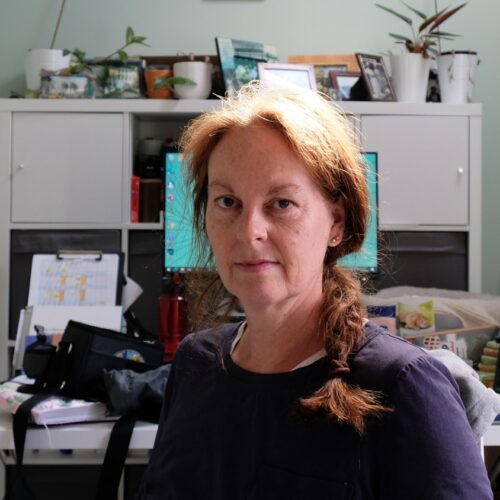
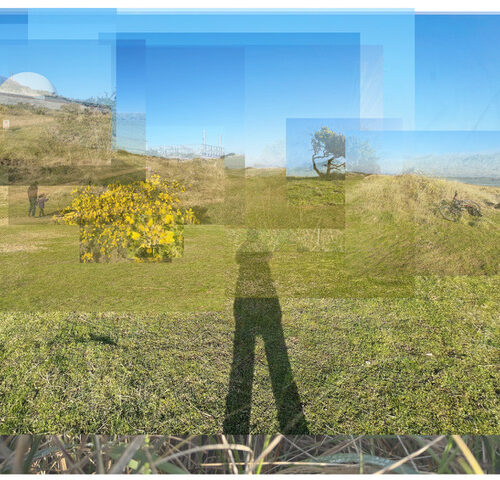
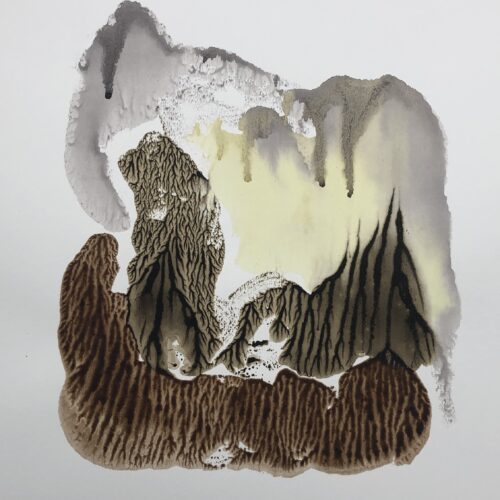
Great to see this – inspiring stuff! Thanks Anne (and Dan). Good luck with your work in the Forest of Dean.
I was so pleased that you were able to carry your project into the psychogeography short Course Anne. I’m enjoying following your experiments with new work and please;ased too that we’ll be continuing to keep in contact through group meetings.
A great summary of your journey. A thoughtful analysis and recognition of what matters to you. Best best wishes for the future .
Excellent line Anne: “it wouldn’t have been possible without the amazing toolkit I developed through my years with the OCA”. I think this is indicative of the life-long learning aspect of HE. It’s not about learning this, or remembering that fact or person. It’s about how it changes what you can do, your confidence: the ‘glimmer of possibility’ that it inspires you to start a project when you have an idea. With this toolkit you can do so much more than you once thought you could.
Thank you Derek but very true. The decision to step out with DipHE was the right one but it doesn’t mean I have stepped out of learning and don’t think I ever will. It’s so rewarding and you learn something new about yourself every day.
Your double exposures and overlays with your fabulous cyanotypes are inspiring, Anne, they are unique and add layers of meaning to all you have done to date. Super developments!
Thank you all for your kind words, it has taken me a long time to learn to let go and experiment but it is now paying off and I am enjoying the surprises.
Great work and all the best Anne! Be great to see you again when we all get together in the Midlands!
Really thoughtful article Anne. I exited even earlier at the end of level 1 but soon missed it so much I re enrolled and am back on my degree path. Thought your story about keeping your study and practice going was inspiring